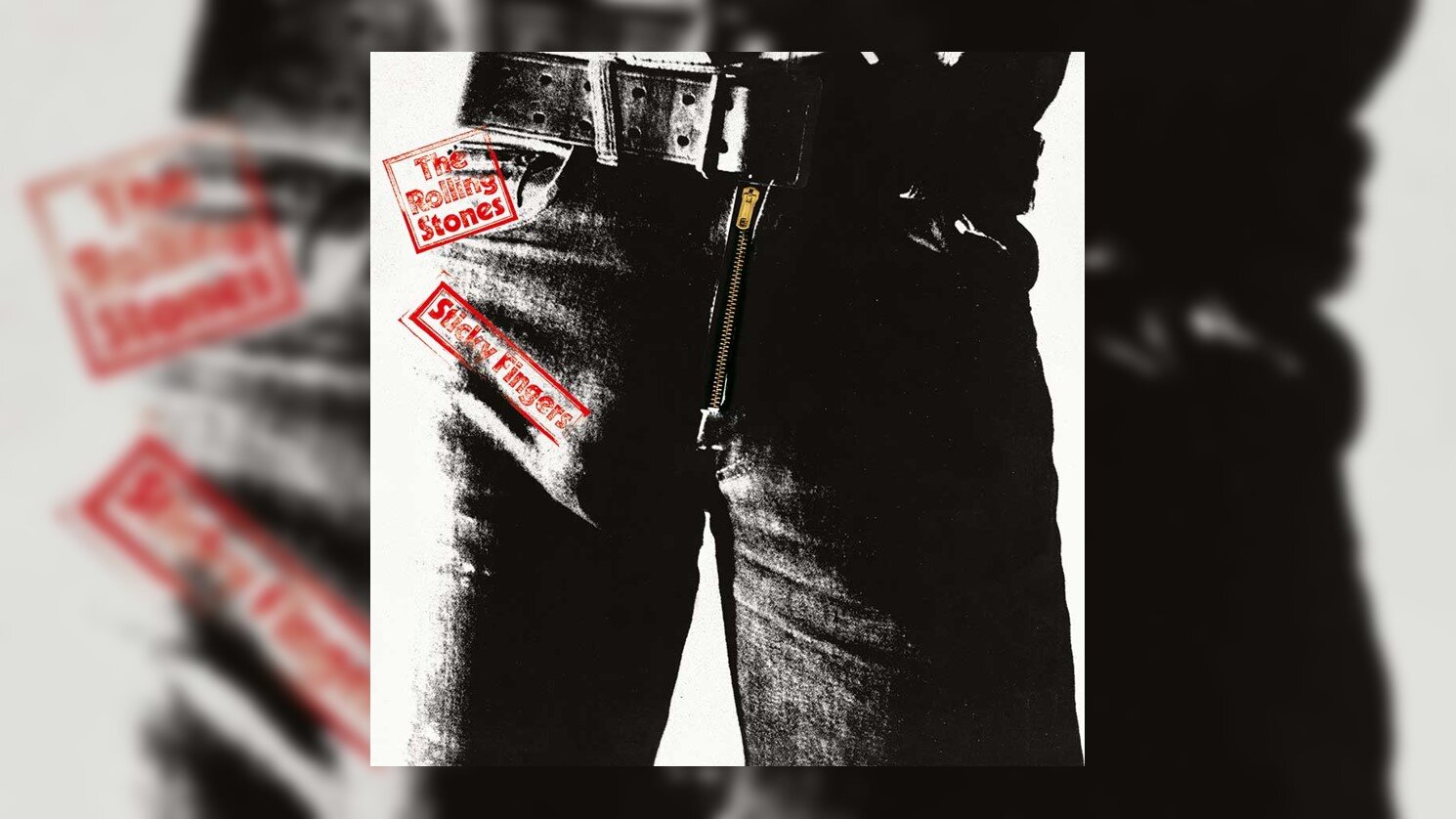Happy 50th Anniversary to The Rolling Stones’ Sticky Fingers, originally released April 23, 1971.
Every great band has a defining, signature moment in which they let the universe know that they are going in a very different direction. The Beatles' Revolver (1966) was our tour guide to Sgt. Pepper's Lonely Hearts Club Band (1967). The road to Exile on Main Street (1972) was hand-delivered to us by Sticky Fingers, the ninth British and eleventh American studio album by the Rolling Stones.
This transitional phase was not an easy one. Let's go back to March 1969. During the recording sessions for Let It Bleed, Brian Jones' erratic behavior had taken a severe toll on the band. His multiple drug arrests made it almost impossible for the band to tour the United States. He was in such a bad state that he only contributed to two songs, playing autoharp on "You Got the Silver" and percussion on "Midnight Rambler.” On June 9th of that year, he was fired from the band that he had formed. Keith Richards played all of the guitar parts on the rest of Let It Bleed.
It was at the suggestion of their road manager and pianist Ian Stewart that they added Mick Taylor to the band to replace Jones. Less than a month later, Jones was discovered dead at the bottom of his swimming pool. This was only the beginning of a dramatic shift in the Stones’ fortunes.
On December 6th, 1969 the Rolling Stones headlined The Altamont Speedway Free Festival, which was filmed for the documentary Gimme Shelter. The murder of Meredith Hunter by Hells Angels was accidentally captured during filming. It was an incident that caused the Rolling Stones to not play “Sympathy for The Devil” in concert for years.
In addition to the event at Altamont, the Stones were dealing with a serious legal issue. Their association with Decca Records had finally come to an end. They were finally free to release their albums the way they wanted. Or so they thought. Their departing manager Allen Klein informed the group that they had signed over their entire 1960s copyrights to his company, ABKCO.
Not only were they not free, they were informed that they owed the company a single. They proceeded to record a track called "Cocksucker Blues.” Naturally, Decca refused to release the song. Instead, the label released "Street Fighting Man" and Allen Klein made a deal to retain partial copyright ownership of "Brown Sugar" and "Wild Horses.”
Now that their deal with the devil was done, they began work on Sticky Fingers. It was the first LP released on the Rolling Stones’ own label, as well as the first to feature the world famous John Pasche designed tongue and lips logo.
The opening riff on "Brown Sugar" was all Keith Richards, but the unsung star of this album is Mick Taylor, the newest member of the band. His contributions on the tracks "Can't You Hear Me Knocking" and "I Got the Blues" are clear evidence that a new era for the Stones was being ushered in. Sticky Fingers manages to pull off the difficult task of simultaneously offering a loving nod to the Stones' bluesy past and a foreshadowing of their hazy drug-fueled future.
Sticky Fingers is a night out on the town with an old friend whom your significant other kind of likes, but knows will get you very drunk and render you useless the following day. Your night starts out at a very cool bar in New York City (the old, really cool New York City, not the one that exists today). You've already told yourself that you’ll have just a couple, but then you're heading straight home.
"Brown Sugar" is that song that makes your ears perk up once you hear that opening guitar. It brings you to a familiar place and you're at ease. "Sway" and "Wild Horses" is that point in the evening where your friend, this free spirit whose life, free of responsibility, you sometimes envy, tells you about the person who's captured his heart. Once you're over the shock that your friend even has a heart, you can’t help but say to yourself "damn!” By the time "Can't You Hear Me Knocking" rolls along, your friend manages to convince you to down three shots of Jameson's. At this point, you know you're in for the long-haul. "You Gotta Move" and "Bitch" is that inevitable conversation you have about lovers long gone.
"I Got The Blues" features an amazingly soulful, gospel-like organ solo by Billy Preston, who I believe was put on this earth to oversee the remains of shattered rock icons. To me, this particular track stands out because of its Muscle Shoals/Stax influences. It's the song that Otis Redding never got to sing.
"Sister Morphine” is a first person confessional about someone deep in the throes of a serious drug problem. This particular track definitely lets us know that Keith Richards is in a whole heap of trouble with clear indications that it is not going to get better. It didn't. “Dead Flowers" and "Moonlight Mile" round out the LP. They are that long cab ride home at four in the morning from Alphabet City in that aforementioned New York City that we all miss dearly.
Sticky Fingers is that old friend you miss dearly. You love hearing the stories. You don't mind knocking back a few and feeling like you're living on the edge for a little bit with the full knowledge that you can return safely to the world you enjoy now. Thank you Sticky Fingers, my troubled yet brilliant friend. For the past 50 years, you've never let me down.
LISTEN:
Editor's note: this anniversary tribute was originally published in 2016 and has since been edited for accuracy and timeliness.

